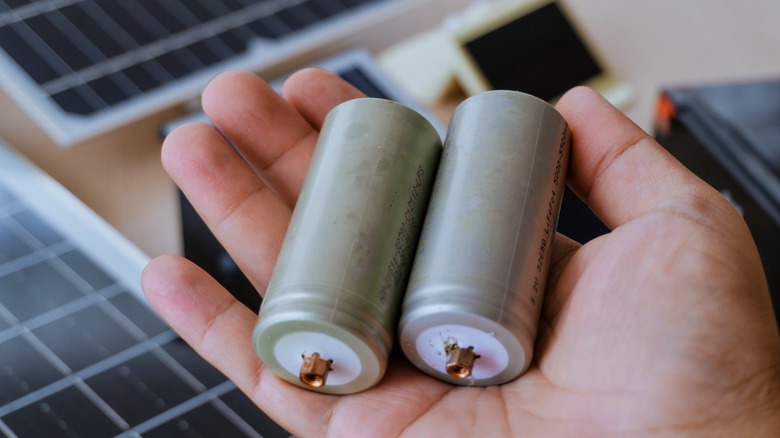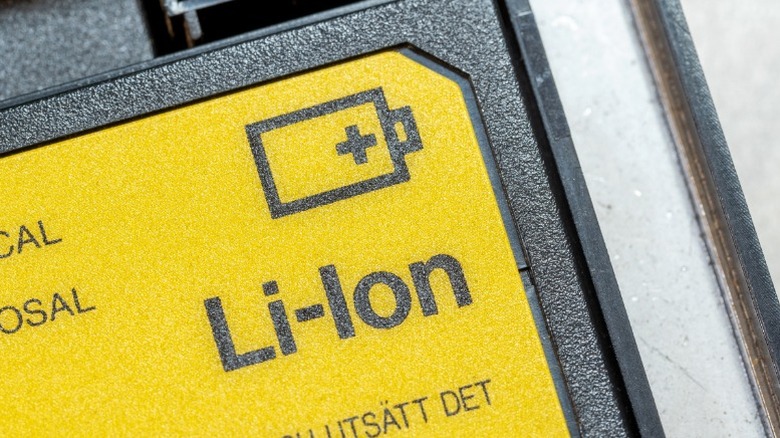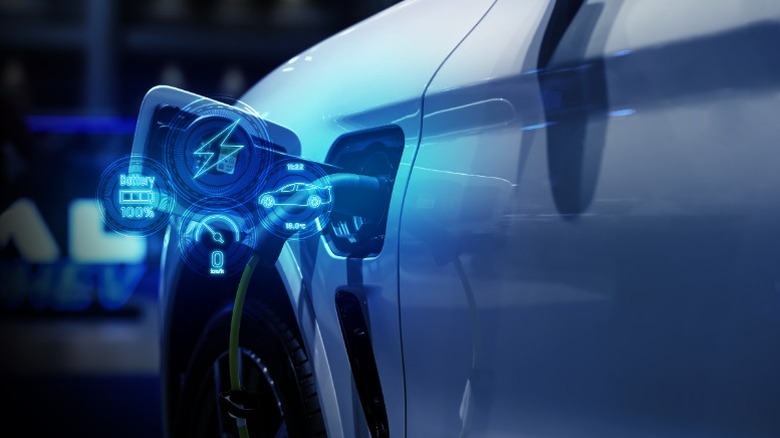What Are The Differences Between Lithium-Iron-Phosphate & Lithium-Ion Batteries?
The chemical battery was invented in 1800 and named after the Italian chemist, Alessandro Volta, and it's safe to say that modern appliances and electronics would have a difficult time thriving otherwise. There is constant research being done in hopes of bringing advancements to new battery technologies, but for now, the one we're most familiar with remains the lithium-ion cell.
You may also have heard of lithium-iron-phosphate batteries, especially in conversations surrounding electric cars or backup power sources. Both lithium-ion and lithium-iron-phosphate (or LFP) batteries are ideal for use in gadgets or appliances that require considerable amounts of constant power. Despite both kinds of cells being lithium-based, there are notable differences in these battery technologies that one must consider, or at least be aware of.
The foundational difference between these cells is the chemical composition. Lithium-ion batteries use a variety of materials as the electrodes, including lithium cobalt oxide or lithium manganese oxide. Graphite, which is carbon-based, is commonly used as the anode. On the other hand, LFP batteries use lithium iron phosphate (LiFePO4) as the cathode and graphite as the anode. Let's delve a bit deeper into understanding how these chemical differences affect other characteristics of these batteries.
Li-ion vs LFP batteries
The use of materials such as cobalt, manganese, and nickel makes lithium-ion batteries extremely energy dense, which is why they're the default choice in smaller electronics such as smartphones and laptops, where higher efficiency is sought after. By comparison, lithium-iron-phosphate batteries have lower energy density, but are rated to last much longer — up to ten years – making them ideal for use in electric cars or appliances that are expected to have a longer lifespan.
Being lower in density compared to lithium-ion batteries means that lithium-iron-phosphate batteries end up being heavier at similar capacities. However, given that they're primarily used for bigger applications like projects revolving around electric vehicles, backup power units, or solar energy storage systems, the added weight is not a concern.
Another thing LFP batteries have going for them is better thermal and chemical stability, which is one of the biggest problems faced by lithium-ion batteries. Lithium-iron-phosphate batteries feature a wider temperature range, between -4 and 140 degrees Fahrenheit, compared to the typical operating range of 32 to 113 degrees Fahrenheit in lithium-ion batteries. This makes them not only ideal for use in colder and warmer scenarios but also directly amps up the overall safety factor.
Other benefits of LFP batteries
The basic difference in chemical composition, in addition to how it affects the energy density, lifespan, and thermal stability, are all factors worth looking into when comparing these lithium-based battery types. Charging habits directly affect the health of a battery, but the wider operational range and more stable voltage behavior over full charge and discharge cycles of lithium-iron-phosphate batteries generally make them a better option in this regard. Added safety means that incidents where lithium batteries catch on fire are far less likely to occur with LFP batteries.
LFP batteries don't use metals such as cobalt, manganese, or nickel — which are not just expensive to procure but also raise ethical and environmental concerns. Though they might be cheaper to produce, it's worth noting that LFP batteries are less energy-dense than traditional lithium-ion batteries. This asks for more volume to achieve similar energy outputs, indirectly driving up the cost of manufacturing and designing the enclosure.
That said, for use cases where the size and weight of an appliance are less of a concern, LFP batteries have meaningful advantages over their traditional counterpart. Major EV manufacturers such as Tesla, BYD, and Ford have already started relying on the safety and longevity that lithium-iron-phosphate batteries have to offer.


